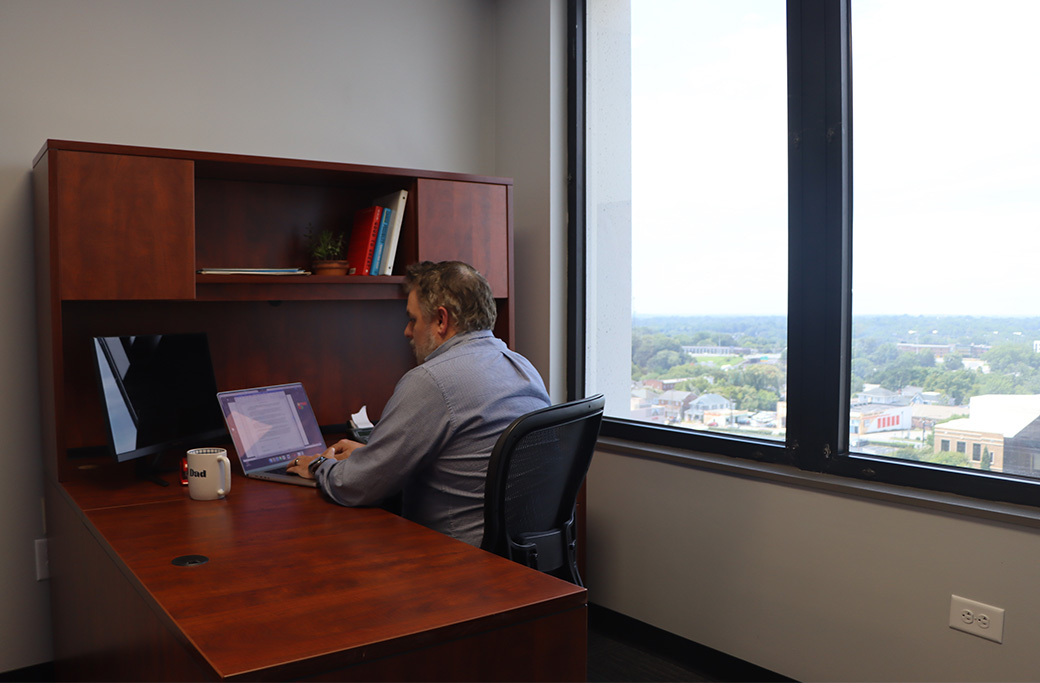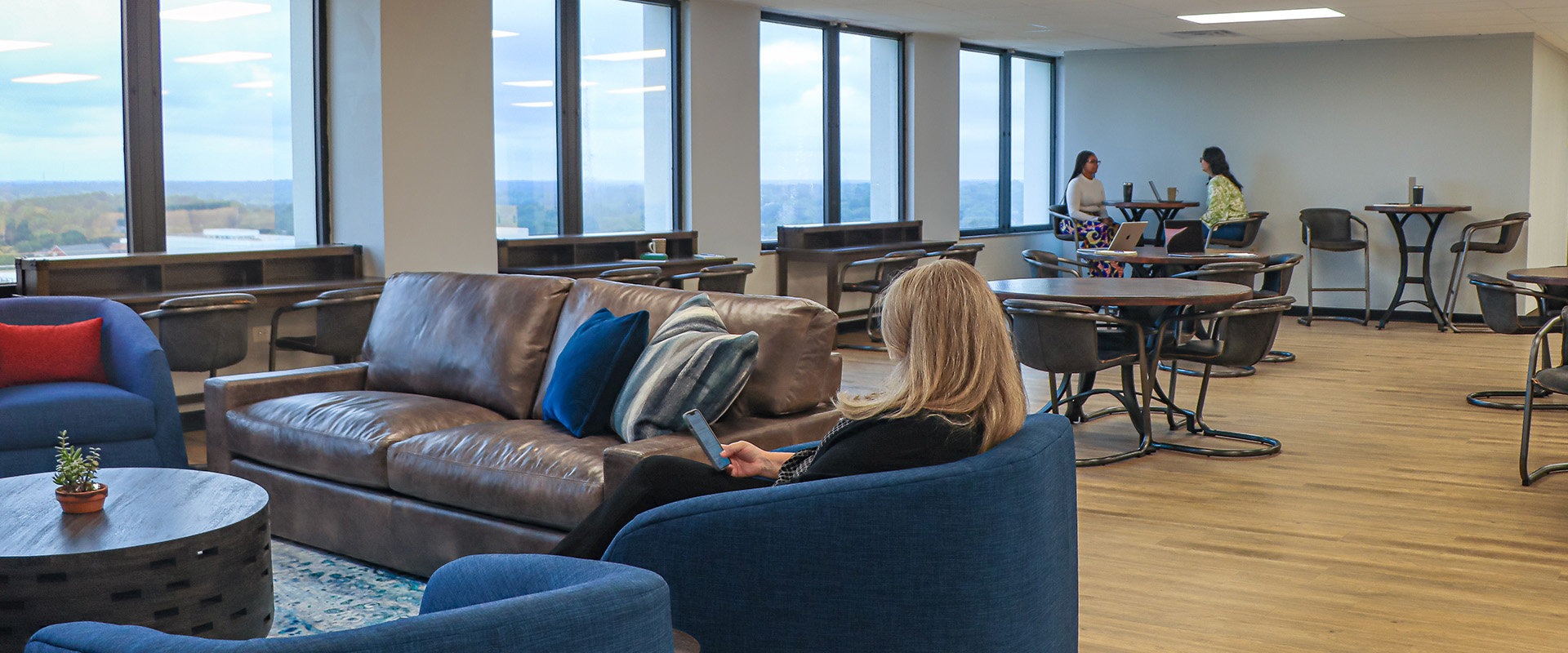
Finding the perfect workspace is a vital decision for any entrepreneur, small business, or startup. The rise of remote work, flexible schedules, and the dynamic needs of modern businesses have led to innovative workspace options—most notably, co-working spaces—as alternatives to traditional office spaces. But which option suits your business best?
To help you make the right choice, we’ll explore the key differences between co-working and traditional office spaces, spotlight their unique features, and break down how to determine the ideal fit for your needs.
What Are Co-Working Spaces?
Co-working spaces are shared work environments designed to foster productivity, flexibility, and collaboration. These modern spaces redefine the concept of a traditional office by bringing together professionals from various industries to work in proximity, while still offering a balance of structure and flexibility.
Key Features of Co-Working Spaces
-
- Flexible Terms
Choose from daily, monthly, or yearly plans to suit your evolving needs—no rigid long-term leases here!
-
- Shared Amenities
Access fully equipped spaces with high-speed Wi-Fi, printers, conference rooms, lounges, and kitchens—all included in the package.
-
- Networking Opportunities
Meet like-minded professionals through workshops, events, and meet-ups, opening doors to potential partnerships and collaborations.
-
- Variety of Workspaces
Select from hot desks, dedicated desks, or private offices to match your team size and work style.
At Launch Tower in downtown Winston Salem, our co-working spaces are geared to support productivity and collaboration, with all the tools and resources you’ll need to thrive.
What Are Traditional Office Spaces?
Traditional office spaces allow businesses to lease private, dedicated environments for their operations. They’re often characterized by exclusivity, customization, and a more formal setup—offering greater control but with some trade-offs in terms of flexibility.
Key Features of Traditional Office Spaces
-
- Personalized Branding
Create a workspace that truly reflects your company’s identity with full branding and customization opportunities.
-
- Privacy and Exclusivity
Ideal for businesses that prioritize confidentiality and a distraction-free environment.
-
- Long-Term Contracts
Expect fixed lease agreements lasting several years—providing stability but less room for adaptation.
-
- Best for Larger Teams
Designed for established companies that can commit to steady growth and long-term workspace requirements.
Key Factors to Consider When Choosing
1. Cost and Budget
Co-working spaces tend to be more budget-friendly, with lower upfront costs and flexible memberships. Traditional office spaces, on the other hand, require a substantial initial investment, including long-term rent, utilities, and furniture costs.
If you’re a startup or freelancer keeping a close eye on cash flow, co-working spaces may be the better choice. Established businesses with consistent revenue may find the predictability of traditional leasing worthwhile.
2. Flexibility
Co-working spaces shine when it comes to flexibility. Whether you need to expand or downsize, the terms are adaptable to your changing needs. Traditional office spaces, however, lock you into long-term leases, leaving little room for scaling or pivoting.
For businesses navigating uncertain growth, co-working is a safer bet.
3. Collaboration and Networking
Co-working spaces create a natural hub for networking, perfect for startups and freelancers looking to expand their professional circles. Entrepreneurs often discover their next big opportunity or collaboration while sharing coffee in the lounge!
Traditional offices lack this collaborative dynamic but provide more privacy for teams that prefer working behind closed doors.
4. Company Size and Growth Plans
For small teams, freelancers, or startups, co-working spaces offer everything needed at a fraction of the cost and commitment. Larger companies or businesses with extensive growth plans typically benefit from the dedicated space and privacy that traditional offices provide.
5. Privacy and Customization
Privacy is one area where traditional office spaces surpass co-working, offering fully private work environments to safeguard sensitive data and operations. Co-working spaces, with their shared nature, may lead to occasional distractions and limited private areas, though private office options in co-working setups can offer a middle ground.
6. Amenities and Services
Co-working spaces excel with their all-inclusive amenities—giving you access to a professionally set-up workspace, tech infrastructure, and even community events like workshops.
Traditional office spaces, however, put more responsibility on you to furnish, maintain, and manage these essentials—adding to overhead and workload.
Pros and Cons of Each Workspace Model
Co-Working Spaces
Pros:
-
-
- Flexible terms suitable for dynamic businesses.
- Affordable and ready-to-use infrastructure.
- A community-driven environment that fosters collaboration.
-
Cons:
-
-
- Limited privacy.
- Potential distractions in shared spaces.
- Branding opportunities are often minimal.
-
Traditional Office Spaces
Pros:
-
-
- Completely customizable to your branding and needs.
- Greater privacy and exclusivity.
- Stability with long-term leasing.
-
Cons:
-
-
- Higher costs with significant upfront investments.
- Rigid terms that limit adaptability.
- No built-in networking or collaborative culture.
-
Who Benefits Most from Each Option?
Co-Working Spaces
These are ideal for freelancers, startups, small businesses, and remote teams looking for flexibility, affordability, and networking opportunities. Think of co-working as the perfect launchpad for innovation-driven and growing businesses.
Traditional Offices
Traditional office leases are best suited to established businesses with larger teams. These organizations benefit from the privacy, branding, and exclusivity required to operate at scale.
Co-Working vs. Traditional Office Space: Which Is Right for You?
Deciding between a co-working space and a traditional office depends on your unique needs as a business. If you value flexibility, affordability, and a vibrant community, co-working is likely the way to go. For companies prioritizing privacy, long-term stability, and full control of their space, traditional offices may be the better fit.
Still unsure? At Launch Tower, we specialize in helping small businesses and entrepreneurs thrive with our modern, fully equipped co-working facilities. Whether you need a hot desk, a private office, or guidance from our on-site business experts, we’re here to help.
Explore how Launch Tower can meet your flexible workspace needs! Visit Us


